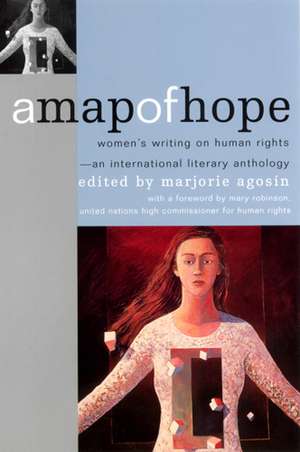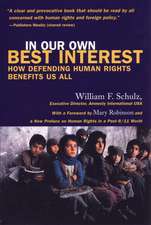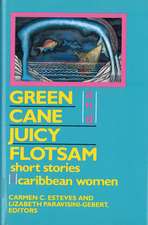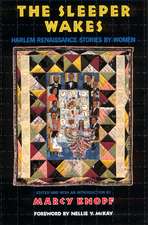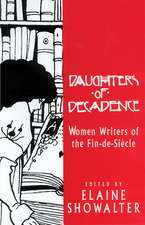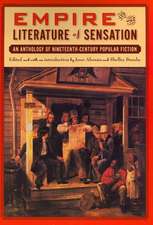A Map of Hope: Women's Writing on Human Rights—An International Literary Anthology
Editat de Marjorie Agosínen Limba Engleză Paperback – iun 1999
The first international anthology to explore women’s human rights from a literary perspective.
More than half a century after the United Nations Declaration of Human Rights, women throughout the world still struggle for social and political justice. Many fight back with the only tools of resistance they possess—words. A Map of Hope presents a collection of 77 extraordinary literary works documenting the ways women writers have spoken out about human rights issues.
Writers young and old, known and unknown, explore the dimensions of terror, the unspeakable atrocities of war, and the possibilities of resistance and refusal against all odds. Their poems, essays, memoirs, and brief histories examine issues that affect the condition of women in war, prison camps, exile, and as victims of domestic and political violence.
A Map of Hope presents diverse women writers who have created a literature of global consciousness and justice. Their works give a face, an image, and a human dimension to the dehumanization of human rights violations. The collection allows readers to hear voices that have decided to make a difference. It goes beyond geography and ethnic groups; writers from around the globe are united by the universal dimensions of horror and deprivation, as well as the unique common struggle for justice and solidarity.
More than half a century after the United Nations Declaration of Human Rights, women throughout the world still struggle for social and political justice. Many fight back with the only tools of resistance they possess—words. A Map of Hope presents a collection of 77 extraordinary literary works documenting the ways women writers have spoken out about human rights issues.
Writers young and old, known and unknown, explore the dimensions of terror, the unspeakable atrocities of war, and the possibilities of resistance and refusal against all odds. Their poems, essays, memoirs, and brief histories examine issues that affect the condition of women in war, prison camps, exile, and as victims of domestic and political violence.
A Map of Hope presents diverse women writers who have created a literature of global consciousness and justice. Their works give a face, an image, and a human dimension to the dehumanization of human rights violations. The collection allows readers to hear voices that have decided to make a difference. It goes beyond geography and ethnic groups; writers from around the globe are united by the universal dimensions of horror and deprivation, as well as the unique common struggle for justice and solidarity.
Preț: 318.57 lei
Nou
Puncte Express: 478
Preț estimativ în valută:
60.96€ • 65.19$ • 50.83£
60.96€ • 65.19$ • 50.83£
Carte tipărită la comandă
Livrare economică 17 aprilie-01 mai
Preluare comenzi: 021 569.72.76
Specificații
ISBN-13: 9780813526263
ISBN-10: 0813526264
Pagini: 408
Dimensiuni: 152 x 235 x 15 mm
Greutate: 0.45 kg
Ediția:None
Editura: Rutgers University Press
Colecția Rutgers University Press
ISBN-10: 0813526264
Pagini: 408
Dimensiuni: 152 x 235 x 15 mm
Greutate: 0.45 kg
Ediția:None
Editura: Rutgers University Press
Colecția Rutgers University Press
Notă biografică
MARGORIE AGOSIN was recently honored with the United Nations Leadership Award for Human Rights. A professor of Spanish at Wellesley College, she has authored many books, among them An Absence of Shadow, Ashes of Revolt: essays on Human Rights, Melodious Woman, Always from Somewhere Else, My Jewish Fathers, and Dear Anne Frank.
Cuprins
Foreword by Mary Robinson
Acknowledgments
Introduction
Universal Declaration of Human Rights
One: War and Remembrance
Two: Imprisonment and Censorship
Three: Childhood
Four: Exiles and Refugees
Five: Domestic and Political Violence
Six: Resistance and Refusal
Notes on Contributors
Copyrights and Permissions
Acknowledgments
Introduction
Universal Declaration of Human Rights
One: War and Remembrance
Two: Imprisonment and Censorship
Three: Childhood
Four: Exiles and Refugees
Five: Domestic and Political Violence
Six: Resistance and Refusal
Notes on Contributors
Copyrights and Permissions
Recenzii
Here we find writers well-known and unknown, stories and poems horrific and touching, drawn from the last 60 years. A map implies guidance, an aid to find our way. This collection is not so much a map of hope, but a map to hope.....Here are voices we know and trust for their honest witness to the atrocities of this century. . . . A Map of Hope brings together 77 writers, each with the terrible burden of witness and the honesty it imposes. As Natalia Ginzburg writes of the survivors of fascism in Italy, 'We cannot lie in our books and we cannot lie in any of the things we do.'
Agosin, herself a permanent exile and activist poet, has uncovered a rich vein of hope in the slag heap of geography, and has sounded a deep humanity in the silence of history's brutal inhumanity....If ever there were a book of voices to sing out the last days of our century and a hopeful cartography to guide us into the new millennium, it is this illuminated map for the ages.
This volume bears witness to women's memories and experiences as victims and survivors of human rights abuses. It maps suffering, pain, exile, and imprisonment as well as struggles for justice and freedom and resistance to authoritarianism and fear. For Agosin, this volume is a map of hope, because it bears witness to the human rights abuses that women around the world have faced and continue to endure. The anthology comprises a human geography of witness, mapping hope through literary expression.
Descriere
A Map of Hope presents diverse women writers who have created a literature of global consciousness and justice. Their works give a face, an image, and a human dimension to the dehumanization of human rights violations. The collection allows readers to hear voices that have decided to make a difference. It goes beyond geography and ethnic groups; writers from around the globe are united by the universal dimensions of horror and deprivation, as well as the unique common struggle for justice and solidarity.
